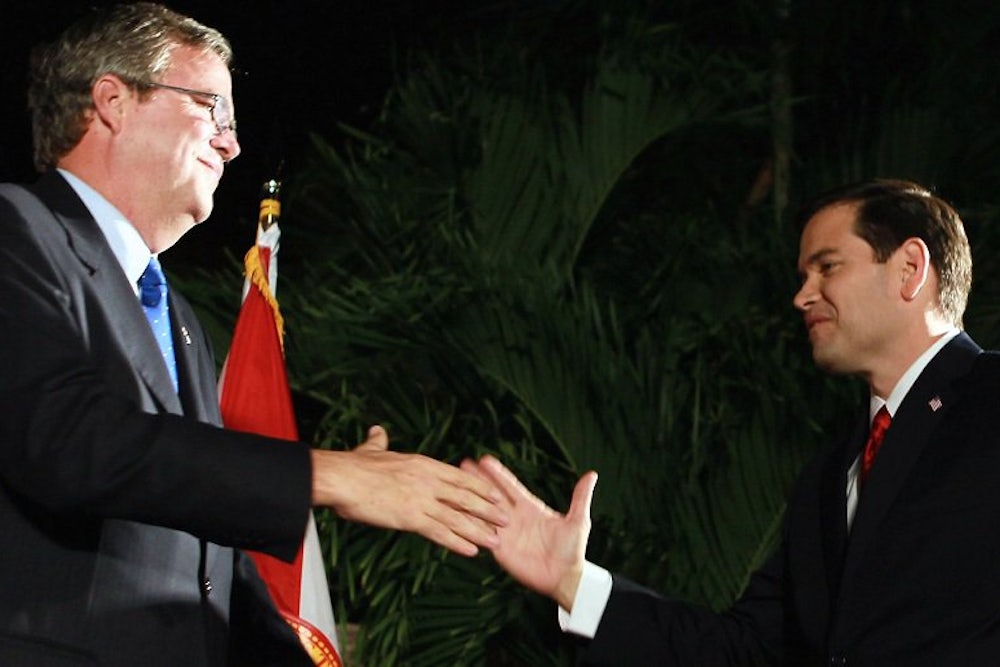Jeb Bush is running for president. Or at least he has “decided to actively explore the possibility of running for President of the United States.” The former governor of Florida made the announcement on Twitter and Facebook Tuesday morning. He intends to form a PAC in January.
If there is one loser from Bush’s decision to explore a presidential run, it’s Senator Marco Rubio, also from Florida. Bush has deep connections to the donor base in Florida thanks to his eight years running the state. If Bush does choose to run—and the signs clearly point that way now—it will leave little room for Rubio to mount his own presidential campaign.
That’s not only bad news for Rubio, but for reform conservatives—the group of conservative thinkers who have pushed the Republican Party to offer new ideas. The group has gained considerable influence within the GOP over the past few years. More than nearly any other lawmaker, Rubio has sought out the reformicons, as they are known, and adopted their ideas. For instance, the Florida senator has proposed plans to reform the regulatory and welfare systems that contain similar ideas as two reformicons—the American Enterprise Institute’s James Pethokoukis and the Manhattan Institute’s Scott Winship respectively—proposed in Room to Grow, a 122-page book published in May by the YG Network that outlined a new conservative agenda. Rubio’s Social Security plan was praised by reformers like National Review’s Reihan Salam and the New York Times’ Ross Douthat. He’s working with Senator Mike Lee on a tax plan that would expand the Child Tax Credit, an idea that Robert Stein, another reformicon, promoted in Room to Grow, and on a health care plan with Representative Paul Ryan. In June, Rubio gave a major policy address at a YG Network–sponsored event in Washington, D.C., in which he praised many of these ideas.
In other words, more than any other Republican, Rubio is working to develop a new policy agenda to meet today’s challenges, and much of that agenda is coming from the reform conservatives. If Bush’s decision to run for president causes Rubio to forego his own presidential run, the reformicons will lose their best chance to influence the Republican primary.
Ramesh Ponnuru made this very argument at Bloomberg View in November. “Almost any Republican running in 2016 will therefore make the need to turn the page a major theme of his campaign,” Ponnuru wrote. “Rubio—who is young, vigorous and reform-minded—could do that. So could Wisconsin Governor Scott Walker, or many other Republicans. Jeb Bush couldn't.
“And that's why Republicans should hope he doesn't run, and doesn't keep more promising candidates from entering the race.”
This doesn’t mean the reform conservatives won’t have a standard bearer in the Republican primary. As Ponnuru says, Walker or other candidates could take that mantle. But no one was better positioned to become the standard bearer for the reform conservatives than Rubio was.
